UK-based employees at the scientific publisher Springer Nature are taking strike action today in a dispute over pay. The move comes after negotiations broke down in April, with union representatives citing Springer Nature’s high profit margins as evidence of its ability to improve employees’ pay as they struggle with dramatic increases in the cost of living.
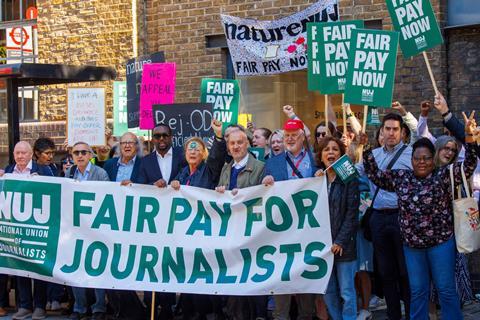
Over 200 editors, journalists and production staff working across the Nature family of journals are members of the National Union of Journalists (NUJ) and are expected to participate in today’s strike. A further 180 members of staff affected by the pay negotiations are also eligible to take part in the industrial action.
In April, union negotiators rejected a 5.8% salary increase offered by Springer Nature. The union argues that while this figure is higher than the UK’s current rate of inflation (2%), it fails to offset a real terms reduction in pay caused by higher rates of inflation in recent years and the associated cost of living crisis. Employees are also unhappy about rising commuting costs caused by the company doubling the number of days that staff are expected to travel to its London office.
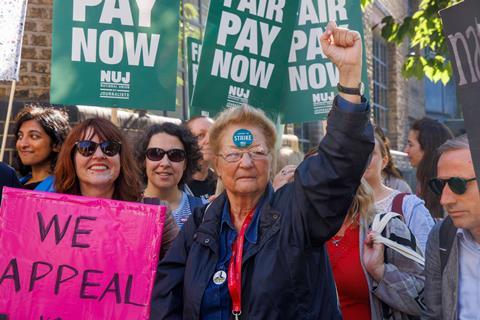
‘We’ve got colleagues whose mortgages have gone up by £200 per month, whose energy bills have gone up by £130, on top of rising food bills – and now their commuting costs are also doubling,’ said an NUJ spokesperson after union members voted for strike action last month. ‘Springer Nature’s claim that their pay offer is “above inflation” is playing fast and loose with reality. Many of us have seen the real-terms value of our salaries shrink over the past few years.’
An open letter in support of the striking workforce has been signed by around 500 scientists, who noted that if Nature is to achieve its ‘primary mission’ of serving scientists by publishing and reporting on scientific advances and related issues, ‘you cannot do it without your staff’. The letter was signed by six Nobel prize winners, including 2021 chemistry laureates David MacMillan and Ben List.
Messages of support accompanying the open letter included one from Eric Jacobsen at Harvard University that read: ‘Nature’s editors, journalists and production staff play a critical role in the evaluation, advancement and communication of science. They need to be compensated appropriately for their work.’ Ben List added: ‘Science should not be the subject of greed, but rather of openness, freedom, enthusiasm and fairness.’
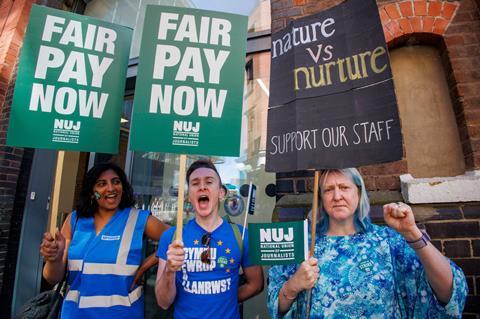
The NUJ points out that in 2022 Springer Nature posted an operating profit of €487 million (£410 million), which represents a profit margin of 27% on its revenues. It also highlighted a recent 8% increase in Nature’s open access article processing charges, bringing these to €10,290, as evidence of Springer Nature’s healthy financial position and ability to pay higher wages.
‘We continue to believe that the above-inflation salary increase on offer is a fair one and remains open to all members of the NUJ bargaining unit, many of whom have now accepted it. We also recently announced additional measures to assist with increased commuting and living costs to support all UK employees, which builds on further cost-of-living payments we made in 2022 and 2023,’ a spokesperson for Springer Nature told Chemistry World. ‘We remain hopeful that the situation will be resolved soon and have clearly indicated our willingness to come to the table for further discussion.’
NUJ members plan a further seven days of strikes over the next six weeks unless an agreement over pay is reached. ‘In-between strike days we will work to rule,’ said union representatives in a statement released to the press. ‘That means that we will fulfil the terms of our contract, but nothing more. No nice extras. No goodwill.’





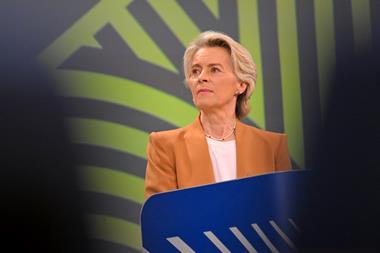
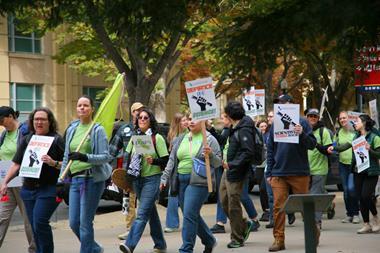










No comments yet